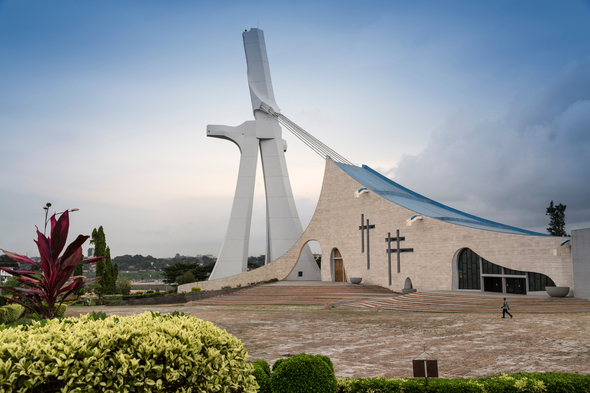Of course, West Africa is a huge geographical region, with a coastline that runs from the Arab states of the Maghreb and the Sahara Desert all the way down to South Africa, via the grasslands of the Sahel, the impenetrable jungle of the Congo and the magnificent dunes of the Namib Desert. Most expedition cruise itineraries will focus on a specific stretch of coastline or island group, though there are some longer repositioning voyages that will take you all the way from Lisbon or the Canary Islands down to Cape Town.
Here are just a few of the reasons why you should consider a West Africa expedition cruise:
1. Off-the-beaten-track adventure
Much of West Africa remains challenging to navigate if you're travelling overland, with large distances to cover, limited or non-existent public transport, and an obstacle course of bureaucracy and corruption to tackle at many border crossings. Travelling on an expedition ship takes all the stress out of your trip, and what's more you'll be accompanied by a team of naturalist guides and destination experts, who will really get you to the heart of the different cultures and ecosystems that you will encounter.

2. Unique wildlife experiences
Although a West Africa cruise is much less focused on wildlife than a trip to South or East Africa, there are some truly unique habitats here that you will have the chance to explore. Ships often call at Walvis Bay in Namibia, an important wetland region that is renowned for its birdlife, including two species of flamingo, great white pelicans, black-necked grebes, curlew sandpipers and pied avocets. Far to the north, in Guinea-Bissau's little known Bijagos Archipelago, you can see the unique saltwater hippo, while southern Ghana's Kakum National Park is home to species including forest elephants, bongo antelopes and Diana monkeys.

3. Idyllic islands
West Africa is about more than just the mainland, with a number of beautiful and fascinating island groups that are perfectly suited to exploring by small ship cruise. Most familiar to Brits are Madeira and the Canary Islands, culturally part of Europe but geographically part of Africa, situated off the west coast of Morocco. Further to the south are the former Portuguese colonies of Cape Verde, with its spectacular volcanic scenery, and São Tomé and Príncipe, an idyllic and unspoilt tropical paradise that few people have even heard of, home to beautiful beaches and lush rainforests rich in birdlife.

4. Colonial history
West Africa was the nexus of the Atlantic slave trade, when an estimated 12 million African slaves were forcibly removed from their homes and shipped to the Americas in appalling conditions. The legacy of this dark period can still be keenly felt in West Africa today, and there are plenty of architectural reminders of European colonial rule and the 'Scramble for Africa'. In places like Benin and Angola you will see the forts where slaves were imprisoned before being shipped out to plantations in Brazil, the Caribbean and North America, along with poignant memorials to the millions of lives that were lost.

5. Culture and traditions
The west coast of Africa is home to an incredibly diverse patchwork of cultures, religions and traditions, from the bustling souks and ornate Islamic architecture of Morocco to the voodoo fetish markets of Togo and Benin. In Guinea-Bissau you can meet the matriarchal Orango tribe, where women choose their husbands, own their homes and act as high priestesses in animist ceremonies, while in the contested territory of Western Sahara you can take tea with the nomadic Sahrawi people and learn about their struggle for independence.

6. The new face of Africa
A trip to West Africa will challenge many preconceptions about the continent, showcasing the dynamism and resilience of countries such as Sierra Leone and Côte d'Ivoire that have only recently emerged from bitter civil wars. The shining skyscrapers of Abidjan, the Ivorian capital, come as a surprise to many visitors, while further south Luanda, the capital of Angola, is awash with oil money, a place where conspicuous consumption rubs up against sprawling shanty towns.

7. West African cuisine
West African cuisine is still relatively unknown in the UK, though some common ingredients will be familiar if you've been to the Caribbean, including okra, cassava and plantain. Vegetables feature heavily, as do chilli and a whole host of other spices, and fish is an important staple in many coastal areas. The most famous West African dish is jollof rice, which typically combines rice with tomatoes, onions, vegetables, meat and spices, though the recipe varies from region to region. The origin of jollof rice is hotly disputed, with a particularly fierce rivalry between Ghana and Nigeria!






